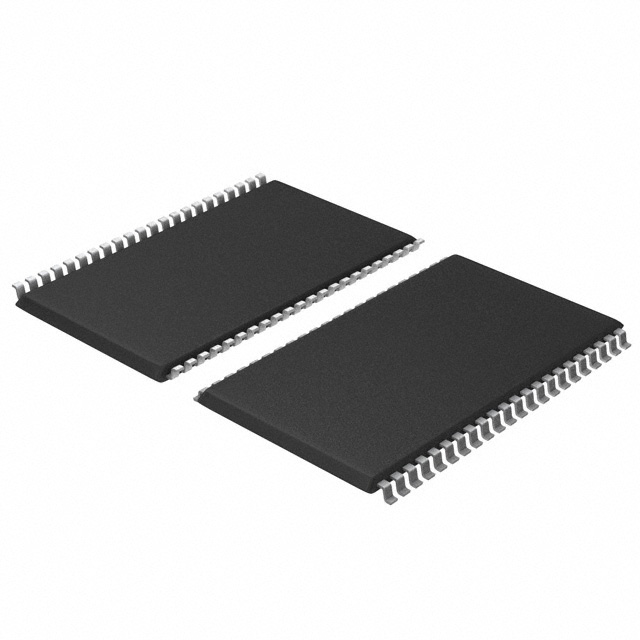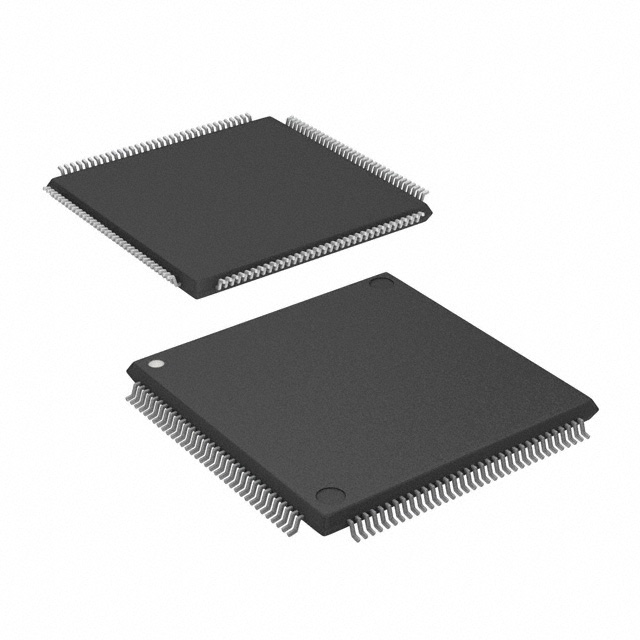CY7C09569V-100AC
Manufacturer No:
CY7C09569V-100AC
Manufacturer:
Description:
IC SRAM 576KBIT PARALLEL 144TQFP
Datasheet:
Delivery:





Payment:




In Stock : 0
Please send RFQ , we will respond immediately.









CY7C09569V-100AC Specifications
-
TypeParameter
-
Supplier Device Package144-TQFP (20x20)
-
Package / Case144-LQFP
-
Mounting TypeSurface Mount
-
Operating Temperature0°C ~ 70°C (TA)
-
Voltage - Supply3V ~ 3.6V
-
Access Time5 ns
-
Write Cycle Time - Word, Page-
-
Clock Frequency100 MHz
-
Memory InterfaceParallel
-
Memory Organization16K x 36
-
Memory Size576Kbit
-
TechnologySRAM - Dual Port, Synchronous
-
Memory FormatSRAM
-
Memory TypeVolatile
-
DigiKey ProgrammableNot Verified
-
PackagingBag
-
Product StatusObsolete
-
Series-
The CY7C09569V-100AC integrated circuit chips, also known as SRAM chips, offer several advantages and can be applied in various scenarios:Advantages: 1. High-density storage: These chips provide a large amount of static random-access memory (SRAM) in a single package, typically 4Mbit or 256Kx16 configuration. 2. Fast access time: They offer high-speed operation with access times as low as 10 ns, allowing for quick read and write operations. 3. Low power consumption: These chips are designed to operate with low power consumption, making them suitable for use in battery-powered devices or power-sensitive applications. 4. Easy integration: They come in a compact package with a simple interface, facilitating easy integration into different electronic systems. 5. Non-volatile operation: These chips have non-volatile memory cells that retain their data even when power is removed, ensuring data integrity. 6. Reliable performance: They provide reliable and consistent performance across different operating conditions and temperature ranges.Application scenarios: 1. Embedded systems: The CY7C09569V-100AC chips can be used in embedded systems, such as microcontrollers, field programmable gate arrays (FPGAs), or digital signal processors (DSPs), to provide additional memory for data storage or program execution. 2. Networking equipment: These chips can be integrated into routers, switches, or network interface cards (NICs) to improve the buffering capabilities or data handling speeds. 3. Automotive electronics: They can be utilized in automotive applications for various purposes, including storing configuration settings, caching data, or facilitating real-time operation. 4. Consumer electronics: These chips are suitable for use in consumer devices like set-top boxes, gaming consoles, or high-performance computers, where fast and reliable memory is required. 5. Industrial machinery: They can be employed in industrial automation, robotics, or control systems to store critical data, perform real-time tasks, or maintain system state.It's worth noting that the specific application scenarios may vary depending on the requirements of the system and the availability of alternative memory solutions.
CY7C09569V-100AC Relevant information
-

CY7C1051H30-10ZSXIT
Infineon Technologies -
EM008LXOAB320CS1R
Everspin Technologies Inc. -
S25HS01GTDPMHB010
Infineon Technologies -
MT60B4G4HB-56B:G
Micron Technology Inc. -
CY15B104QI-20BFXIT
Infineon Technologies -
CY15V104QI-20BFXIT
Infineon Technologies -
CY15B104QI-20LPXIT
Infineon Technologies -
CY15B104QI-20LPXCT
Infineon Technologies -
CY15V104QI-20LPXCT
Infineon Technologies -
CY15V104QI-20LPXIT
Infineon Technologies







